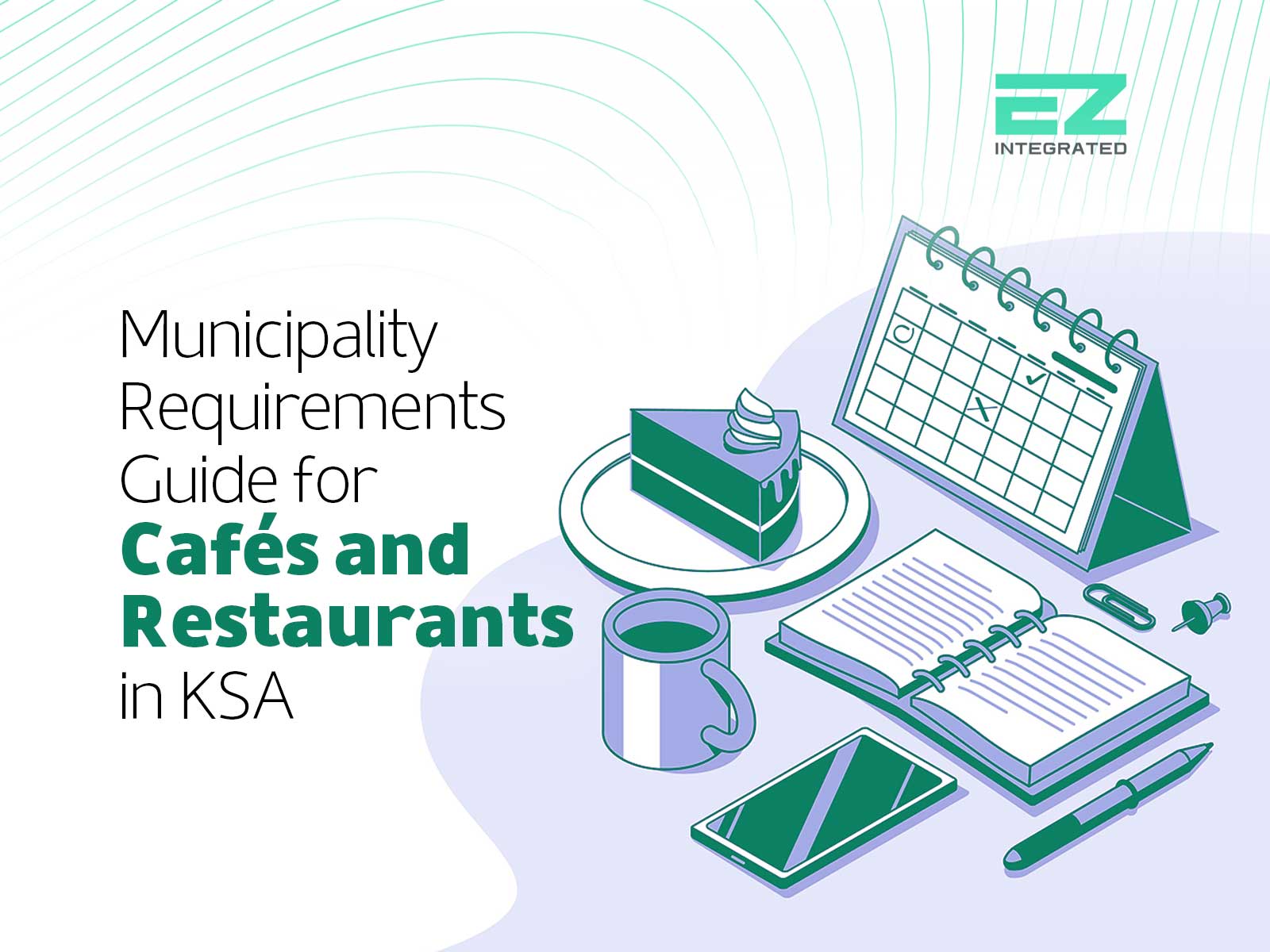Municipality requirements affect far more than layout and facilities. They also shape the tax and accounting obligations of every food business in Saudi Arabia. With ongoing digital transformation, financial compliance is now essential for licensing cafés and restaurants of all sizes.
This guide highlights the key tax related aspects of licensing and explains how EZ Integrated and CODEIT Restaurants support these municipality requirements efficiently.
Regulatory Registration and Municipality Requirements
Compliance begins with two steps: obtaining a matching commercial registration and securing an active municipal license.
These steps form the basis of municipality requirements for cafés and restaurants. Once licensing is completed, VAT registration becomes mandatory when revenue exceeds the legal threshold.
Municipality Requirements Related to E Invoicing
Municipality requirements extend into areas that directly affect tax compliance.
1. Certified POS system
A reliable POS is required for cafés and restaurants. It must record transactions accurately and support all e invoicing functions.
2. Simplified invoices with QR Codes
Municipality requirements include issuing simplified invoices that follow Generation Phase rules and prepare the business for Integration Phase connectivity.
3. Systems that prevent deleting invoices
Municipal rules require systems that do not allow invoice deletion. This follows ZATCA regulations that only permit corrections through credit or debit notes.
Also read: Smart Solutions for e Invoice Editing in Saudi Arabia
Operational Municipality Requirements with Accounting Impact
Operational rules set by municipalities directly influence financial management.
1. Inventory control and waste documentation
Restaurants must follow clear storage rules. Cafés must organize beverage ingredients and record waste with proper accounting accuracy.
2. Licensing for multiple branches
Each branch requires a separate municipal license. This makes centralized accounting and unified reporting essential.
3. Maintaining financial records
Municipality requirements include keeping invoices, supplier contracts, inventory reports, and expense logs. These documents are also necessary for VAT audits.
Also read: Top Tax Violations and How to Avoid Them Before ZATCA Inspections
Ensuring Tax Compliance Within Municipality Requirements
To remain compliant, every food business should:
1. Record all sales through a certified POS
This ensures consistency with e invoicing and municipality requirements.
2. Apply full e invoicing standards
This includes QR Codes, digital signatures, and storing data for at least five years.
3. Follow VAT rules for purchases and expenses
Only valid electronic invoices from compliant suppliers may be used for tax deduction.
4. Prepare accurate financial reports
Accurate reporting is essential for timely VAT filings.
Integrated Solutions from EZ Integrated and CODEIT Restaurants
Municipality requirements overlap with tax rules across all operational stages. EZ Integrated provides certified solutions that connect restaurant and café systems to the FATOORA platform in the Integration Phase.
CODEIT Restaurants supports the unique needs of food businesses through:
- Detailed purchase and sales management
- Ingredient and waste tracking
- Multi branch management
- Simplified and full tax invoices
- Financial and tax reports
- Android, iOS, and web support
- Offline functionality
These features help businesses meet accounting and e invoicing standards while staying aligned with municipality requirements.
To achieve full compliance with minimal effort, EZ Integrated can guide you to the right solution.
Contact us today for a tailored consultation.
